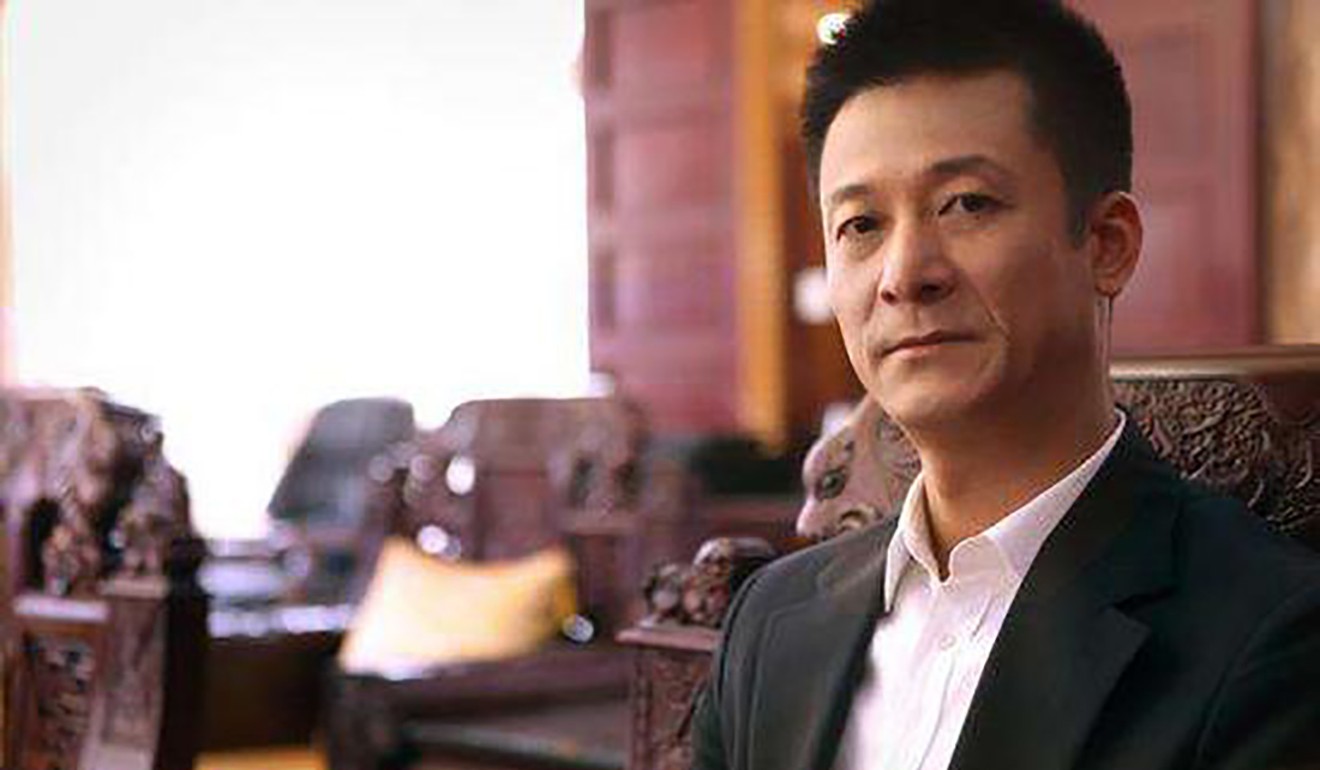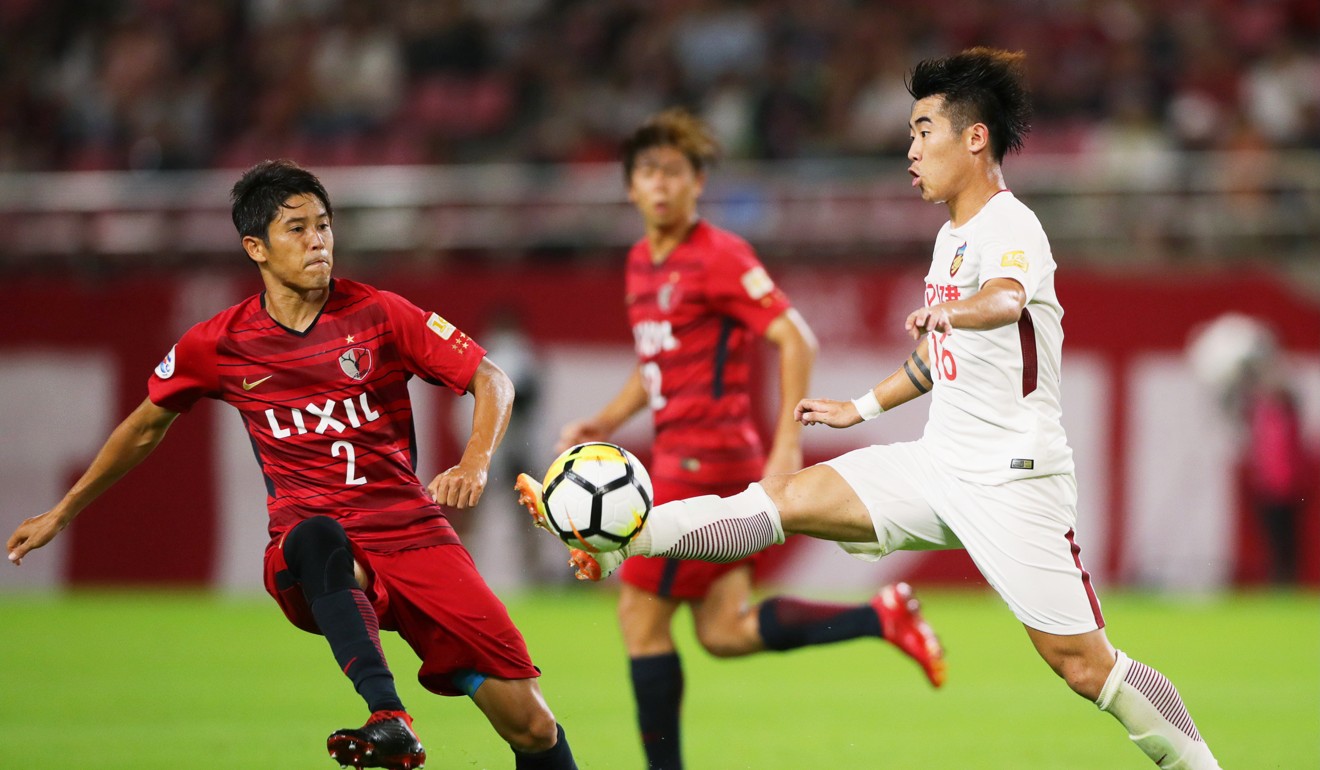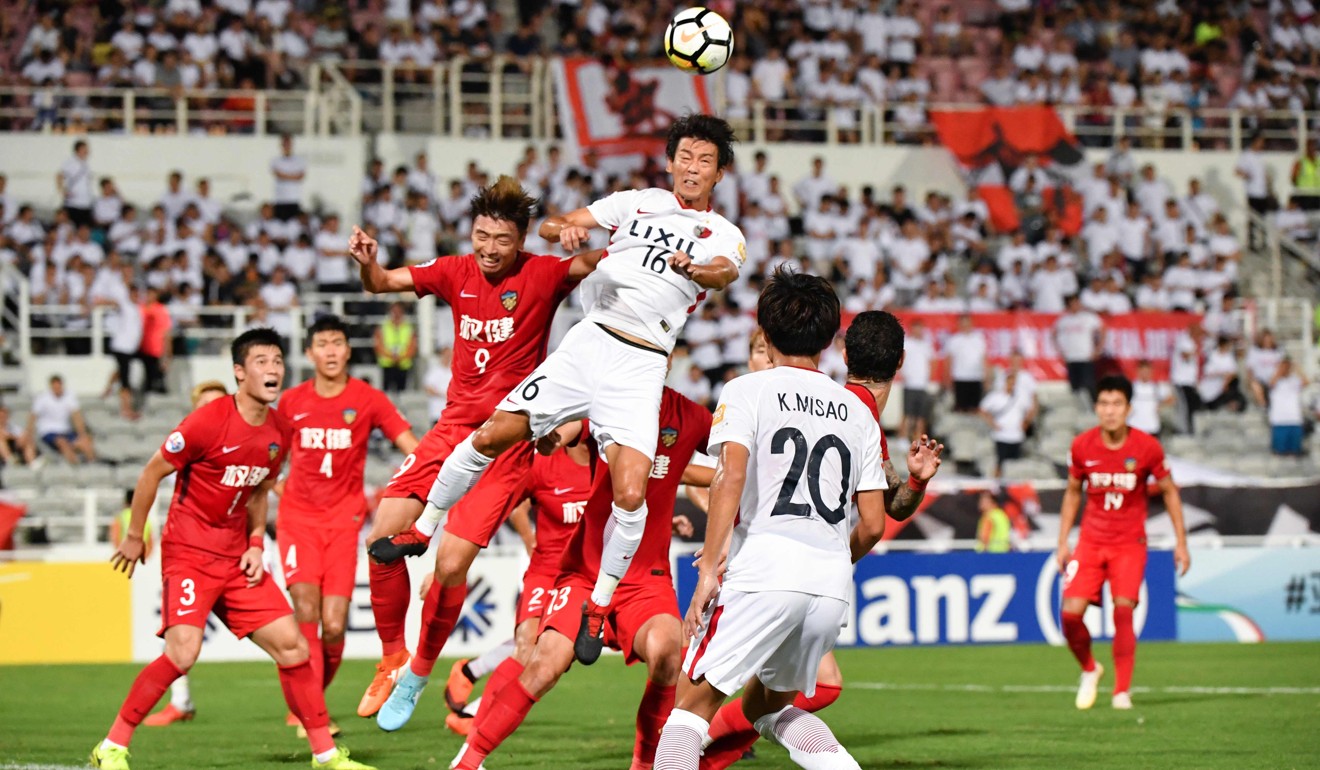
Alexandre Pato leaving, stadium signs dragged down, club name changed – owner’s arrest sees Tianjin Quanjian airbrush history
- Tianjin Quanjian is no more – long live Tianjin Tianhai – as club looks to move on swiftly from scandal
- Local sports bureau takes control following arrest of Shu Yuhui and 17 other members of his company
Tianjin Quanjian’s fate has brought the issue of club ownership in Chinese football back to the fore. Following the arrest of pharmaceutical giant Quanjian Group chairman Shu Yuhui and 17 other members of the company the fall of their football club has been swift.
The signs at the stadium have been dragged down and the name has been changed as the club looks to airbrush its history.
Tianjin Quanjian is no more, long live Tianjin Tianhai. The renamed club is under the control of the local sports bureau for the foreseeable future.
While Shu and his fellow purveyors of magic insoles await their fate under the Chinese legal system, sport has moved swiftly with the Tianjin Quanjian table tennis team the first to drop the name.
Surely it is only a matter of time before Dalian Quanjian, champions of the Chinese Women’s Super League for the last three seasons, are dragged into the maelstrom.
What does that mean for the future of Nigeria striker Asisat Oshoala, who missed out on a third consecutive African player of the year crown on Tuesday night?
Given there are only eight teams in the women’s top flight, the loss of the champions would be catastrophic.
The men’s team are less important in the Chinese football pyramid. Since being taken over in 2015 they were promoted and then qualified for the Champions League but finished ninth last season.
The signs were there that not all was well at the club.

Aside from slipping down the league they lost their manager and two of their three big name foreigners.
They also played a vital AFC Champions League home game, the biggest in the club’s history, in Macau after failing to arrange a venue closer to home after Tianjin was ruled out.
Reports from the mainland suggested the Chinese Super League team’s players had gone without wages, although contrasting reports suggested they had been belatedly paid since Shu’s arrest.
This is not the first time for this to happen at a Chinese football club.
Nicolas Anelka and Didier Drogba’s brief, bizarre spell at Shanghai Shenhua ended with them leaving because of unpaid wages.
That was par for the course under the stewardship of colourful chairman Zhu Jun, a man who insisted on playing himself in friendlies.

Money is often the issue. Anthony Modeste left Tianjin Quanjian claiming he had not been paid. Often there are differences between the Chinese and English versions of player contracts and the Chinese version prevails. That’s before the yin-yang contracts where clubs present one to the taxman and another reflects the real pay.
Those days are coming to an end but it is notable that it is so widespread that the Chinese FA has to act.
It has been made clear that clubs need to clean up their finances, with new rules to ensure just that being brought into effect ahead of the coming season.
Arguably these measures were long overdue.
In 2010 Guangzhou Pharmaceutical Football Club were relegated from the top flight by the Chinese FA as part of a crackdown on gambling and match-fixing. Chengdu Blades, part owned by English side Sheffield United suffered the same fate while Qingdao Hailifeng were banned from football.
Guangzhou rose again as Guangzhou Evergrande but most teams do not.

If teams do not move from one city to the next, changing their name, badge and kit, they disband. Neither is great for building fan culture.
Chengdu Blades were sold in 2010 and then again in 2013 before being disbanded in 2015.
That 2009 investigation was the second time that the club had been punished for match-fixing, the first being in 2001 when they were still Chengdu Wuniu and in the second tier.
The list of clubs flying too close to the sun is long.
Shaanxi Guoli disbanded in 2005 after going bankrupt, and their owner was mentioned in one of the government’s anti-corruption drives. Xinhua reported the club was disbanded because of “malicious non-payment of wages”.
Harbin Yiteng, previously Dalian Yiteng and now Zhejiang Yiteng after moving to Shaoxing, were accused by their own fans of match-fixing.
Liaoning Whowin, once giants of Chinese football, were accused by former captain Zhao Junzhe of bad management. They are now struggling in the second tier.
Dalian Aerbin owner Zhang Minyang was given a “poor credit” rating and the club were relegated. About to dissolve, they were saved by Wanda-brokered Yifang.
And it is still going on.
Sichuan Annapurna were looking for 20 million yuan (US$2.92 million) this week to fund the team.
The deadline for the newly promoted China League One club was 5pm Thursday otherwise they would be declared bankrupt and forced to quit the league.

Shenzhen Ledman disbanded at the end of the 2018 season while Baoding Rongda had issues with the non-payment of players. The owners, Rongda Group, have called time on funding the team and are looking for a new owner.
This is not a problem unique to China – football club ownership the world over attracts some of society’s shadiest – but the volume of it is, and the fear is it will only get worse as clubs are forced to live within their means.
It’s off the pitch rather than on it where Chinese football really lags behind and the football pyramid, like Quanjian Group’s, could so easily come crashing down.

